
It used to be that Ubisoft was seen as an also-ran that spent too long on awkward humour and cheap motion controls games, but then, in 2017, they hit a stride, and have spent the pastcouple of years putting out a surprisingly joyous showcase of games. Low expectations were a factor in our positive reception of its press conferences, but they managed to keep up a better momentum in them than in shows previous, and with announcements like Mario + Rabbids, Beyond Good & Evil 2, Trials Rising, and Assassin's Creed: Odyssey, its pressers had their moments. This year, those moments thinned to a trickle. The conference contained not one but two musical performances this time, and in the first thirty minutes, they managed to announce only one video game. While there have been companies this year compressing their announcements as tightly as possible to fit everything they can into a sixty to ninety-minute presentation, Ubisoft looked to be deliberately burning time.
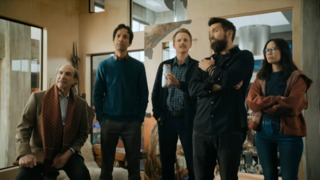
Video games on television are a running joke; they look like crude, out-of-touch representations of the real thing because even when television creators have familiarity with the medium, with the amount of time a video game is going to appear on-screen, it's not worth the hefty cost of making it look polished and fully-featured. Even in a programme like E4 sitcom Dead Pixels which is all about a group of gamers, the video game at its heart looks empty and unfinished. This is because the show's subject matter is only going to apply for a limited audience, and so its budget is scant, and a realistic UI and mechanics in its game wouldn't be relevant to the storytelling.
So, there's a gap in the art form for a programme that can depict video games with some authenticity, a programme like, perhaps, Mythic Quest: Raven's Banquet. It makes sense that if Mythic Quest wants to be a comedy about a games studio, then its producers bringing in a developer like Ubisoft will get them a believable fake game and maybe some insight into the development process itself. I just don't think the first look at it was funny. I can attribute some of that to me having a distaste for It's Always Sunny in Philadelphia; I understand that the characters in it are amoral people, but the script never seems to be able to wring that out into jokes, and Mythic Quest had a similar problem. However, the other half of this is that I don't understand who Ian Grimm is meant to be parodying. Who is the egotistic video game director who has used their marketing to advertise themselves? I can only think of David Cage in this regard, and he's not the Silicon Valley type that Grimm is. My impression thus far is that the show is going for low-hanging comedic fruit with video game novelty.
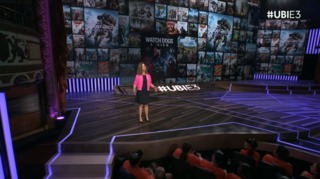
In games service news, UPlay+ enters the subscription platform arena at the bottom of the ranks. At a fee of $15 per month, its money-to-content ratio doesn't stack up against the competition. You can get EA Access for a third of the price, and while PlayStation Now is $5 more than UPlay+, you get a plentiful 600+ video games with it which Ubisoft, being a single publisher, can't begin to match. But the company that really ate Ubisoft's lunch was Microsoft because, for the same price as UPlay+, you can get access to the full Microsoft Game Pass library on PC and console, and get a subscription to Xbox LIVE Gold. I'd hazard a guess that when Ubisoft put its deal together, they didn't know Microsoft had Game Pass Ultimate coming down the pipeline. And the experience of UPlay+ is going to be deeply affected by the design and production philosophy at Ubisoft.
This year, the company had such thematically diverse games as Tom Clancy's Rainbow Six Quarantine, Tom Clancy's Rainbow Six Siege, Tom Clancy's Ghost Recon Breakpoint, Tom Clancy's Elite Squad, and Tom Clancy's The Division 2. The studio that was once known for copying-pasting whole mechanical sets between open-world games is fast emerging as a company with a different kind of homogeneity in its body of work. It's not just that all these modern military games are playing in the same pool of hypermasculine paramilitary confrontation, it's also that video games have already worn that genre to threads. Ubisoft's close crossbreeding between its games means that a service like UPlay+ is a more restricted experience when compared to the competition, in addition to that lack of variation potentially being a source of boredom for people buying Ubisoft games individually.
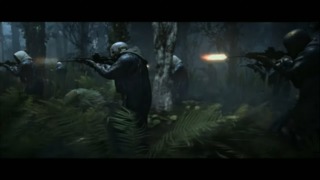
Having all these titles about military conflicts laying about the place also increases the relevance of recent Ubisoft assurances that its games don't convey political messages. They claim that their products present political conflicts but then let the player decide who to sympathise with within them, emphasising that no political disagreement is black and white. But, of course, Ubisoft decides how its games portray real-world world political factions, who the bad guys are, whose perspective we get to follow, and what actions we're rewarded for taking. Games like Far Cry 5 and The Division aren't opportunities to equally explore both sides of an issue and to decide whose mast we nail our colours to; they have clearly identified enemies and one mode of interaction: attack. And honestly, having a black and white moral dichotomy is sometimes okay.
Maybe don't suggest that sanitation workers in NYC are an atavistic scourge that needs to be eradicated, as The Division does, but consider the recent Wolfenstein games. In them, there's no hemming and hawing about whether literal Nazis belong on the business end of a high calibre rifle or not: Wolfenstein knows its position and neither its developer nor its publisher are scared of stating it, but the spokespeople of Ubisoft sound ashamed that their games might have a viewpoint to espouse. Obviously, once a stance gets any more divisive than "Nazis must die" it could chip away at your market share, so they're not going to take the risk. What really galls me is Ubisoft telling us that its games are more mature for supposedly refusing to advocate for specific political opinions. That for having media with no principles and less of a voice, they deserve praise. The issue is no longer that Ubisoft insists its games are apolitical, but it's about as ridiculous. They'll embed you into an armed militia about to storm The Pentagon to execute a horde of faceless goons and then tell you they're not taking a side in that DLC.
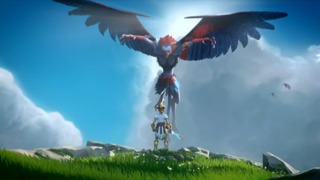
There were some items at the conference that weren't Tier 1 operator fantasies. Gods and Monsters felt like the natural product of Ubisoft flirting with mythological creatures in the recent Assassin's Creed games. With it, they no longer have to pour in the legendary monsters in moderation; they can unleash a flood of them. But the game was their closer, and it was too flimsy to lean on for that purpose. There's no sense of prestige in ending with a game like Gods and Monsters if we can't fathom how it's going to play. With its enclosed arena, neon trails, and fictional sports antics, Rollerball Champions reminds me of the similarly electrifying Rocket League. We could honestly do with more video games about fake sports; there's a lot of untapped possibilities there, and you can see where Rollerball Champions would derive its tension from: An athlete zooming down the course, ball in hand, praying they can score that basket before the competitor feet behind catches up and steals the ball. I just hope there are more player actions than lateral movement, throwing, and tackling opponents, or it might be difficult to derive competitive depth from it.
And now, the big one: Watch Dogs Legion. Watch_Dogs 2 took an action-adventure that lacked personality and captivating world-building, and gave it a lick of paint and a boost of adrenaline. Hacker collective DeadSec were reworked to be goofy and yet brimming with contagious enthusiasm. The tone was largely generated by the dorky yet driven characters in the spotlight, but Legion doesn't think of characters in the same terms. In Legion, you can enlist any citizen from its post-Brexit London into your gang, and it's those recruits who make up the character list. However, this flavour of procedurally-generated character and story doesn't have a good track record. When the writers can't know who the people in the hotseats are going to be at any one point in the plot, it's unlikely they can write a story suited to those characters which sees them undergo meaningful arcs. For the same reason, it's also hard to believe the DeadSec members will be able to engage in nuanced interaction with each other. My attachment to these vigilantes was further strained by their hokey imitations of east end London accents. It's one of those silly idiosyncracies of the industry that a company can model a detailed, believable recreation of the Thames south bank but can't get basic modes of speech right. I don't know why you can't just hire a voice actor from the location your game is set in.
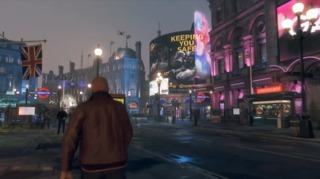
On the plus side, Watch Dogs Legion was an extended gameplay demo at a time when conferences are giving up on the format. Additionally, the concept of a future in which government is unable or unwilling to do its job and aid the citizens, and the leaders' roles are now being filled in by previously fringe extremists is only too reflective of the UK's current political hellscape. But what's as interesting as Legion's perception of the nation is its exploration of how a movement might reverse authoritarian possession of a country. In Watch_Dogs 2, the ultimate purpose of the missions was not to strongarm your ideological opponents into submission as in so many other action games, the goal was to uncover the truth of the celebrities, politicians, and corporations that ruled near-future San Francisco, and let the people do what they will with that information. Legion tasks us with similar goals and introduces the next logical step on that staircase.
In its dystopian capital, the people already know the conditions are dire, but the battle against the extremists running the city doesn't begin with getting on your phone and hacking into some data centres, it starts with convincing potential allies that your cause is righteous and that your agents get results. And because any of those agents can die, there are stakes and an acknowledgement of the cost of revolution that are rare in a single-player video game campaign. This is consummate with the darker attitude of this entry in comparison to the vibrant Watch_Dogs 2, and the backdrop of London couldn't be chosen better. The stocky historical buildings retrofitted with LCD screens and neon lights effectively convey the sense of dismal futuristic authoritarianism, but London also carries famous seeds of punk culture which make Legion's resistance group feel right at home. As with all these games, I need to see more Legion to criticise it from a wholly informed position, but the difference between it and the other games at Ubisoft's show is that I want to see more of it.
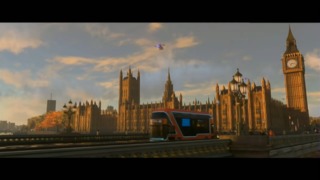
Publishers caring more about updates to existing games over sequels is stemming the flow of flashy, attention-grabbing announcements this year, but I also think that Ubisoft's conference is indicative of another broad trend. With a new console generation dawning a year and a half from now, publishers are going to want to put their golden eggs in the basket of the PS5 and Xbox Two, and fewer of them in the hamper of the present generation. The current machines, Switch aside, are winding down, but Ubisoft and friends can't talk about what the glorious new age of games looks like because the next Microsoft console has no final name and one game announced for it, and Sony hasn't officially announced its upcoming system. Other companies are dealing with it better than Ubisoft, but you can understand how we've been left floating in an announcements airlock with them, drifting between eighth and ninth gen with little but Watch Dogs and all these Tom Clancy games to keep us company. Thanks for reading.
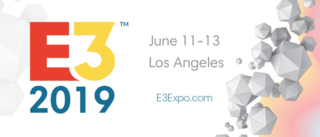
Log in to comment